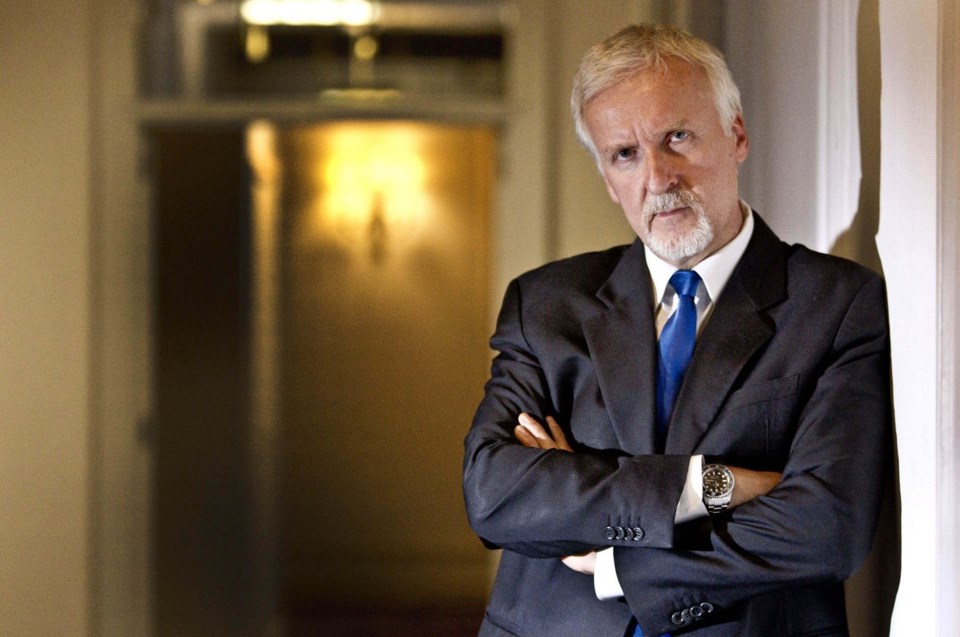NEW YORK (AP) — James Cameron first began developing “Avatar” more than 30 years ago. He started working on the first film in earnest 20 years ago. Production on “Fire and Ash,” which ran concurrently with 2022’s “The Way of Water,” got underway eight years ago.
By any measure, “Avatar” is one of the largest undertakings ever by a filmmaker. It’s maybe the only project that could make “Titanic” look like a modest one-off. Cameron has dedicated a huge chunk of his life to it. Now, as he prepares to unveil the latest chapter of his Na’vi opus on Dec. 19, Cameron is approaching what he calls a crossroads.
In a recent interview, Cameron spoke about his past and future on Pandora, as well as where he thinks movies need to go to survive. Here are excepts from that interview:
On his future with ‘Avatar’
“I’m at a kind of a crossroads where I have to decide if I want to keep doing this. Four and five are written. If we’re as successful as we might potentially be, I’m sure the films will continue. The question for me will be: Do I direct them both? Do I direct one of them? At what point do I pass the baton? How pervasive do I want it to be in my life?”
On his looming decision about more ‘Avatar’ films
“I’m not going to make any decisions about that until probably Q2 of next year, when the dust has settled. And there are also new technologies to consider. generative AI is upon us. It’s going to transform the film business. Does that make our work flow easier? Can I make “Avatar” movies more quickly? That would be a big factor for me.”
On missing magic in the movies
“The theatrical business is dwindling. Hopefully it doesn’t continue to dwindle. Right now, it’s plateaued at about 30% down from 2019 levels. Let’s hope it doesn’t get cannibalized more. In fact, let’s hope we can bring some of that magic back. But the only way to keep that magic alive and strengthen it is to make the kinds of movies people feel they need to see in a movie theater. Unfortunately, those movies are not getting greenlit as much as they used to be because studios can’t afford them. Or they can only afford to take the risk on certain blue chip stocks, so it doesn’t allow new IP to get launched. It doesn’t allow new filmmakers to come into those genres.”
On changes in the movie industry
"The streamers kind of cannibalized the theatrical market with the promise of a lot of money to attract top filmmakers and top casts, and then that money has all retrenched back. The budgets aren’t there. Everything is starting to look like it’s driving toward a mediocrity. Everything starts to look to me like a typical network procedural, or at least that could be an end point within just a couple years. Unfortunately, the economics of streaming expanded rapidly and then contracted rapidly. Now, we’re betwixt and between models. It’s cannibalized theatrical and, at the same time, it’s not delivering the budgets to do the kind of imaginative, phantasmagorical filmmaking."
On how Hollywood survives
“I’d like to see the cost of VFX artists come down. VFX artists get scared and say, “Oh, I’m going to be out of a job.” I’m like, “No, the way you’re going to be out of a job is if trends continue and we just don’t make these kinds of movies anymore.” If you develop these tools or learn these tools, then your throughpoint will be quicker and that will bring the cost of productions down, and studios will be encouraged to make more and more of these types of films. To me, that’s a virtuous cycle that we need to manifest. We need to make that happen or I think theatrical might never return.”
On his announced film project ‘Ghosts Hiroshima’
“There were three bombs in 1945. One was used as a test and two against people. There are now 12,000 and they range in power from 100 to over 200 times the energy that was generated at either one of those two bombings. We’re in a very precarious world right now. And because of all the geopolitical challenges internationally — more nuclear powers, more saber rattling, unaccountable leadership in Russia and America right now — I think we’re in as precarious a situation as we were in the Cuban missile crisis era.”
The Associated Press




